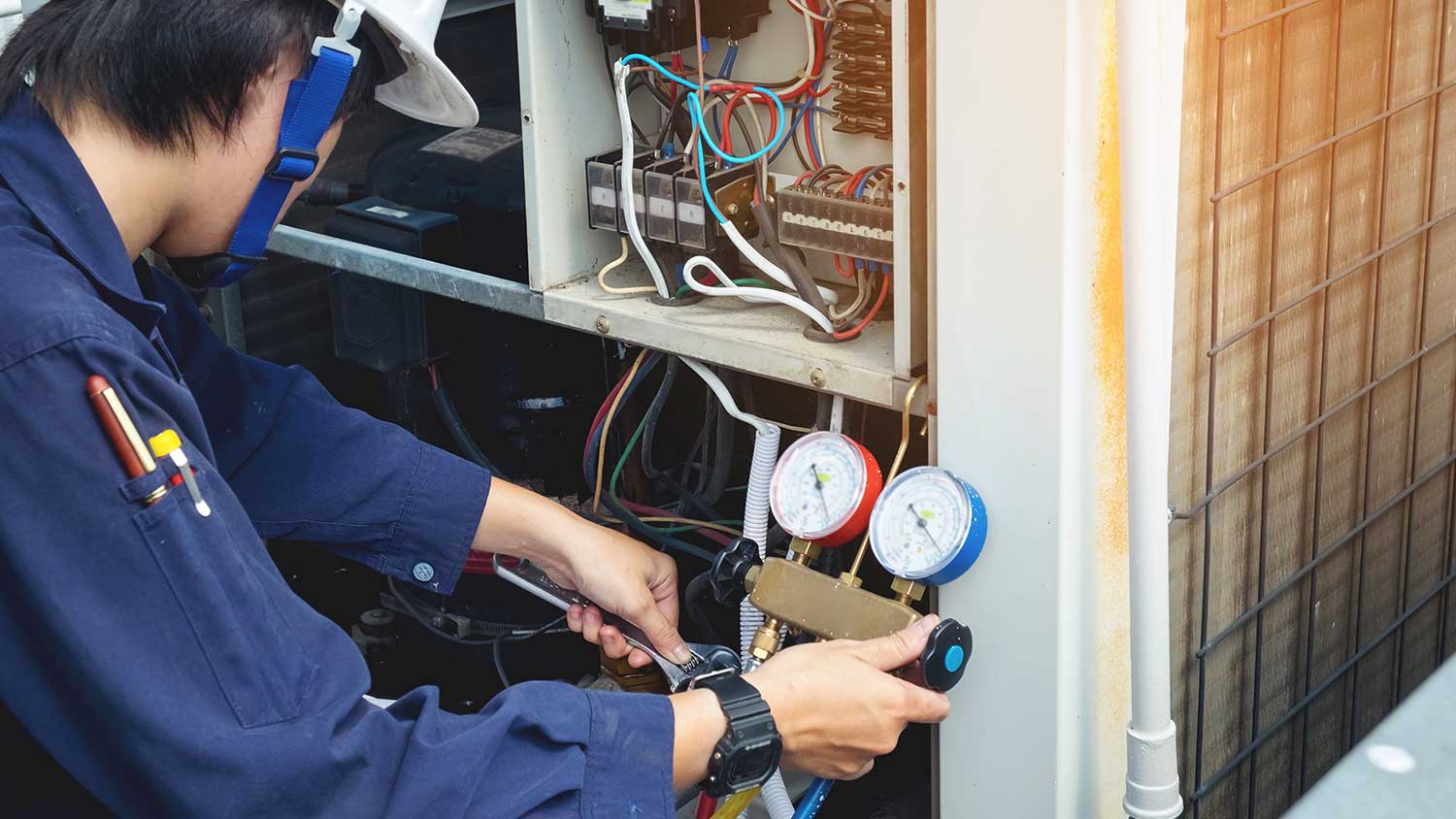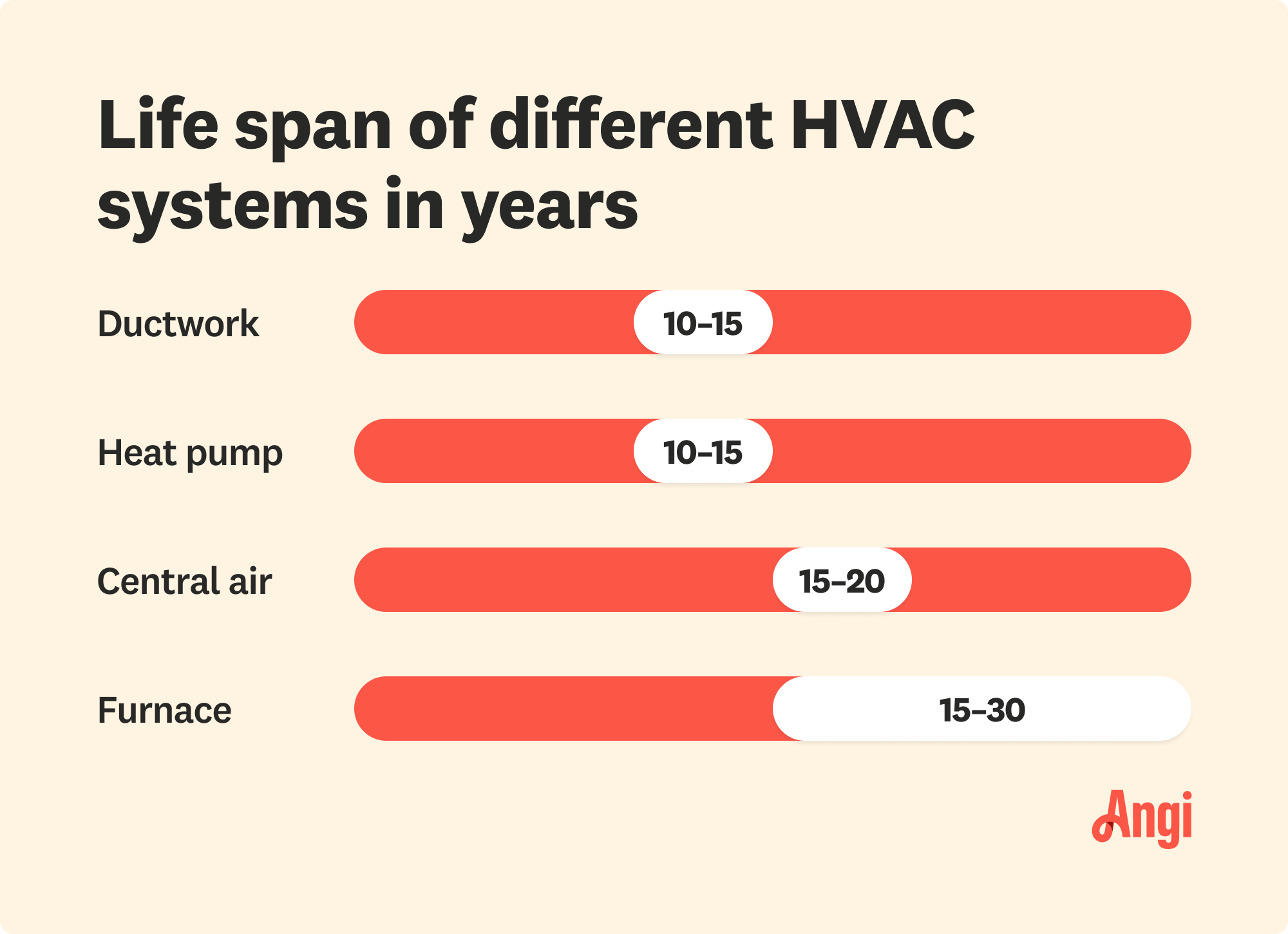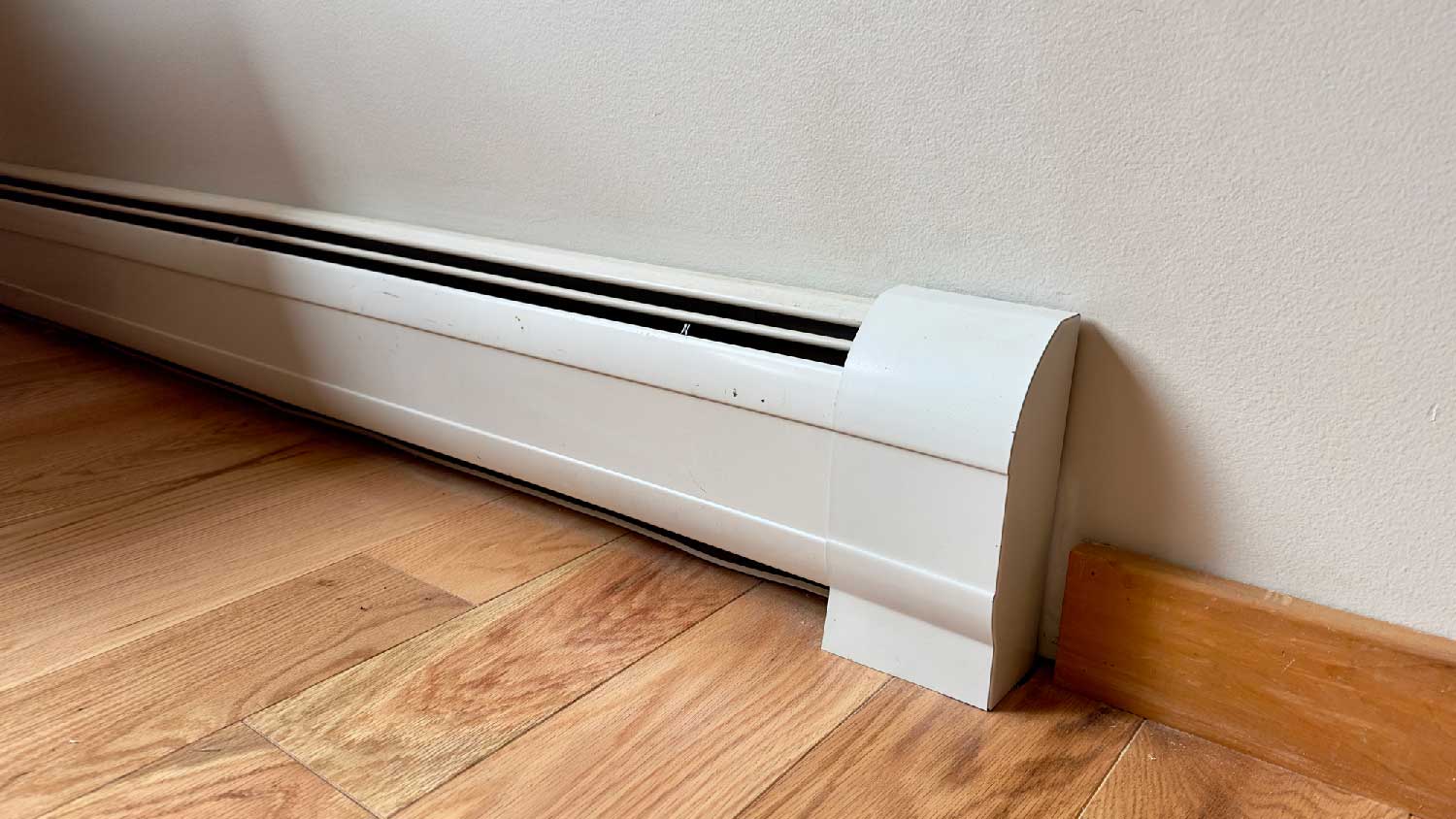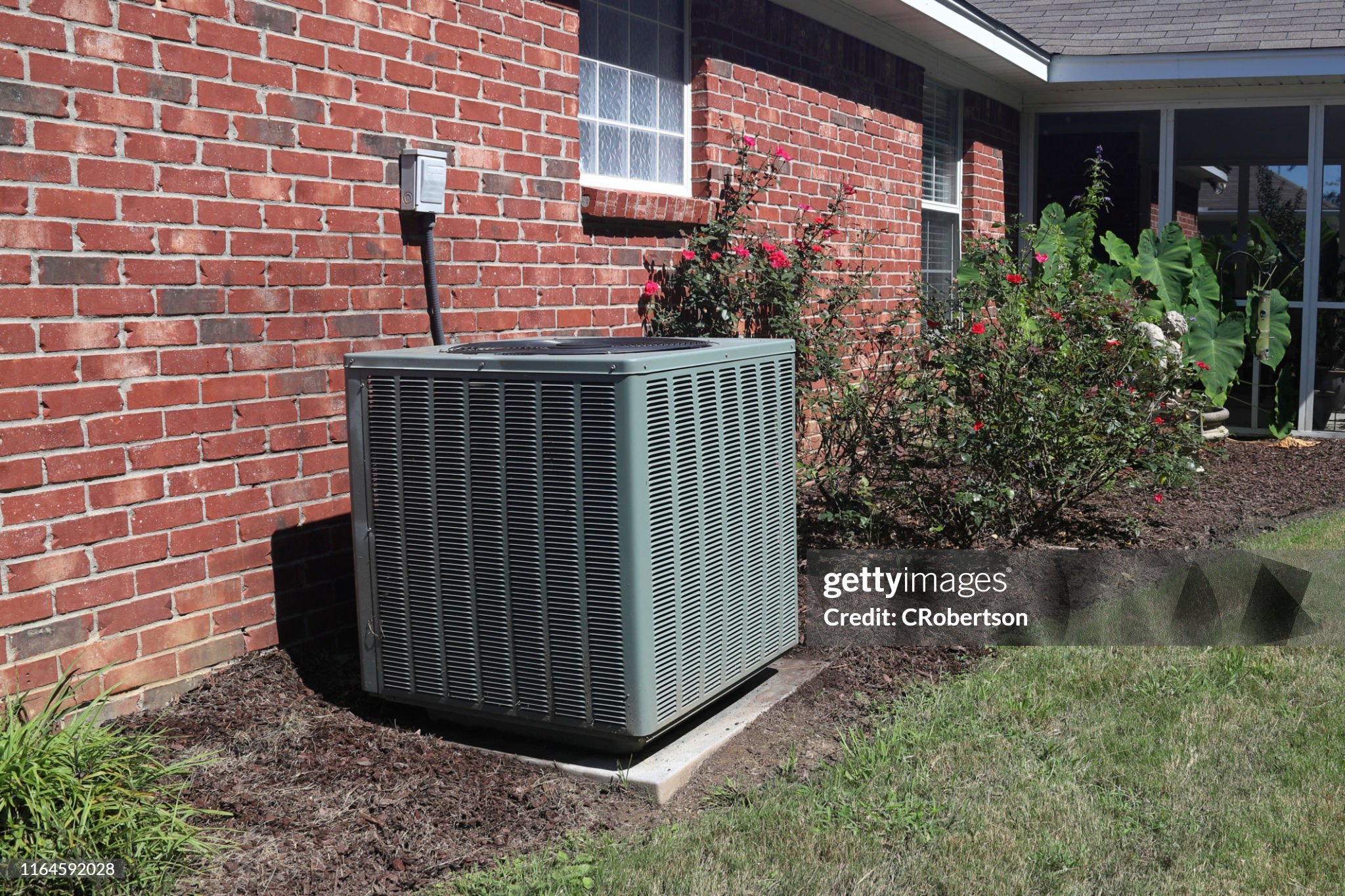
Average costs of HVAC inspections vary based on house size, location, and type of HVAC system. Follow our easy guide to gauge your home’s HVAC inspection cost.
Keep your cool and avoid air conditioning mishaps by scheduling an annual AC tune-up


An annual tune-up of your home’s AC system can extend its life by several years.
An AC tune-up can save you up to 15% on monthly energy bills.
Spring is the best time to perform AC maintenance before usage increases during the summer.
A well-cared-for AC unit will last about 15 years.
A tune-up will cost about $70 to $100, and a replacement AC unit will cost about $5,000.
If you’ve ever experienced a heat wave, you might remember staying inside your air-conditioned house, eating popsicles, and watching movies. But what if your air conditioner had broken down, leaving you doomed to grin and bear it through triple-digit temperatures?
To avoid that kind of AC emergency, HVAC professionals recommend servicing your AC unit annually. A simple AC tune-up can keep your air conditioner functioning properly, especially during the summer heat.
During a maintenance tune-up, a local air conditioning repair pro will conduct a general inspection of your HVAC system. They’ll look at both the indoor and outdoor components of your unit, such as the motors and belts. AC tune-up appointments take about one or two hours, and you can expect an HVAC technician to perform the following tasks:
Check for dirty or loose electrical connections, leaks, or broken safety features
Replace fiberglass, polyester, HEPA, or UV air filter
Confirm that appropriate refrigerant levels are present
Ensure the thermostat is working properly
Measure the coolant levels, adding more if necessary
Look for any blockages in the air ducts, removing if necessary
Clean dirt, pet hair, excess dust, or other debris out of the evaporator and the condenser coils
Operation test to make sure it is functioning correctly

On average, AC tune-ups cost anywhere from $75 to $200. Extended service, which will include both the cooling and heating systems, can run as high as $500. For repairs, expect to pay $50 to $150 per hour for an HVAC technician.
You’ll spend $100 to $350 if your refrigerant needs to be replaced. All of the other maintenance should be included in the flat rate provided by the HVAC company, but it’s worth asking them for a full run-down of what their tune-up service encompasses.
AC tune-up costs are affected by many factors, including the following:
Type of AC unit (larger and more complex units tend to cost more)
Amount of maintenance needed
Timing (prices rise during peak season)
Local labor rates
Most experts recommend getting an AC tune-up at least once per year. In nearly all cases, you should schedule the tune-up for the springtime—right before the summer season when you’ll begin to use your AC system regularly.
Why service an air conditioner every year? With this cadence, the technician can clean the unit and fix any wear and tear that may cause problems during the hot summer months. Additionally, an annual service will help extend your AC system's longevity.
If an air conditioning unit goes unchecked for multiple years, the cost of repairs can be much more expensive than if you were to keep up with the maintenance each year. HVAC professionals can catch issues early on.
Note that those living in hot and humid climates that rely heavily on AC might increase tune-ups to twice per year.
Scheduling an HVAC inspection every six months is crucial for ensuring your system operates efficiently and safely, preventing unexpected breakdowns and costly repairs. Regular inspections can also extend the lifespan of your system, providing comfort and peace of mind throughout the year.
Yearly AC tune-ups will prolong the life of your unit and save you money on utility bills. Here are some other benefits of maintaining your AC system:
Better energy efficiency: Regular HVAC tune-ups will ensure your unit is working to its maximum potential, using the least amount of energy necessary to cool your home.
Lower energy bills: Efficient AC units lead to a drop in your energy bills.
Uniform cooling: An AC that’s in good condition will cool your home evenly. Regular tune-ups ensure you don’t have areas that are unpleasantly hotter or colder than others.
Prevent major damage: By having an HVAC technician regularly check for minor damage, you can prevent bigger problems from developing.
Longer lifespan: Regular maintenance will prolong the life of your system. A well-cared-for AC unit can last up to 15 years.
Improved air quality: An AC tune-up helps remove contaminants like dust and allergens.
While you should have a recurring annual tune-up scheduled for your AC unit, other signs suggest your AC should be checked out, such as:
You receive an unexpectedly high energy bill
Your AC is blowing hot air
There is less airflow from your vents
You notice condensation on your AC unit
Your indoor air temperature is not reaching the temperature set on your thermostat
Your AC unit is constantly running or repeatedly turns on and off
You hear unfamiliar noises coming from the unit
The humidity in your home is higher than normal
This is not an extensive list of signs that it’s time for an AC tune-up. If anything feels off about your AC system, do not hesitate to contact a local air conditioner repair pro in your area.

Unless you’re a licensed HVAC technician, you shouldn’t do your own AC tune-up. This job requires the skill of a professional who knows the parts and processes of your AC unit like the back of their hand.
If you try to do an AC tune-up on your own, you’ll likely miss important signs of future problems, or you could accidentally damage a component without even knowing it. The pros have the knowledge to find even small issues before they become big ones, and they know where to start in tackling larger, more complicated problems that may pop up. Don’t risk the health of your AC system by trying to DIY this job.

Aside from hiring a professional to perform an annual AC tune-up, there are a few tasks you can complete to extend the life of your AC unit.
Change the filter: Check and replace the AC unit’s filter once per month.
Clean the coils: Using a garden hose and a broom, clear your outdoor AC unit of leaves or other debris that could obstruct the coils and fins.
Trim nearby shrubs: Trim any adjacent shrubs to prevent them from obstructing the unit, which can restrict the airflow and cause the unit to overwork and break down.
Check your dryer vent: Make sure the vent doesn’t angle toward your AC unit. Duct vents should be at least 6 feet away from the unit.
Raise the temperature: When you’ll be out of the house for a while, raise the temperature by 7 to 10 degrees. This allows your unit to take a break and will ultimately prolong its life.
Seal openings: Properly sealing windows and doors guarantees that cool air won’t escape from your house, helping your unit expend as little energy as possible to keep your house nice and cool.
From average costs to expert advice, get all the answers you need to get your job done.

Average costs of HVAC inspections vary based on house size, location, and type of HVAC system. Follow our easy guide to gauge your home’s HVAC inspection cost.

Here's what you can expect when getting an estimate for coolant leak repair costs. The cost can vary based on the detection method used, the source of the leak, and the amount of damage that needs to be repaired in the aftermath.

Springing for HVAC maintenance costs may seem like an extra—and easy-to-ignore—item on your checklist, but it will save you money in the long run.

Discover the average wall heater installation cost, key price factors, and expert tips to help you budget and save on your next home heating project.

Poor airflow and high energy bills? It might be static pressure. Learn what it is, how it affects your HVAC system, and how to get it under control.

This calculator helps you estimate how many BTUs you need for your heating and cooling, based on the size of your space, climate, and insulation.